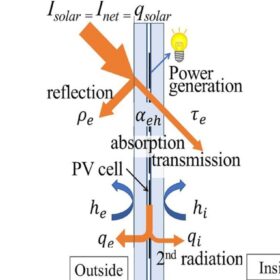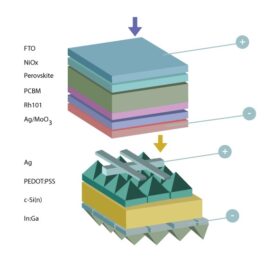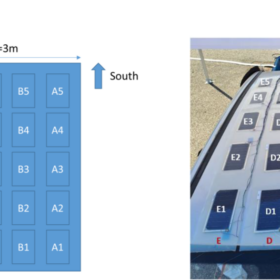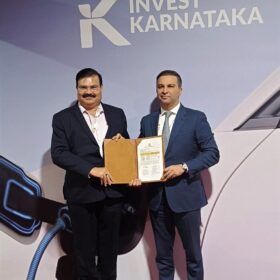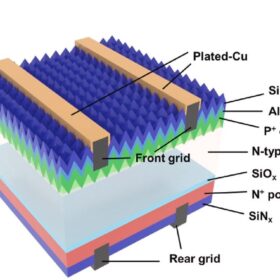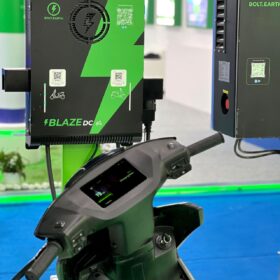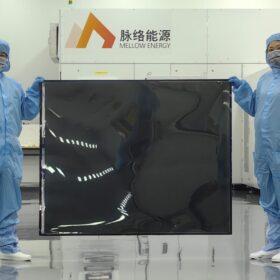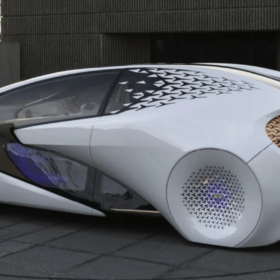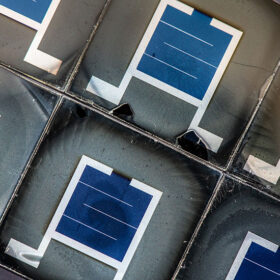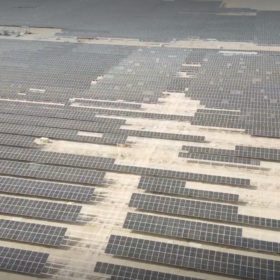Enhancing PV glazing prospects in solar architecture
To make it easier to adopt building integrated PV (BIPV) as a glazing material, a group within the IEA Photovoltaic Power Systems Programme (IEA-PVPS) has tackled the solar heat gain coefficient (SHGC) calculation for BIPV. It is part of IEA PVPS Task 15 international standardization efforts.
Indian scientists build 4T perovskite-silicon tandem cell based on hybrid heterojunction PV device
A research group in India has embedded a hybrid heterojunction solar cell as a bottom device in a four-terminal perovskite-silicon solar cell using a solution processing technique. The novel cell architecture, according to its creators, could be produced at significantly lower costs compared to conventional perovskite-silicon tandem designs.
New test method for curved VIPV surfaces
IEA-PVPS has conceived a new test method and analysis of the impact of curvature in vehicle-integrated photovoltaics (VIPV) surfaces. Over the course of an 8-day summertime trial in south-eastern France, the researchers found that the curvature triggered irradiance and temperature non-uniformity of up to 261W/m² and 13 C, respectively.
Epsilon Group commits INR 15,350 crore for EV battery materials, testing facility in Karnataka
Epsilon Group plans to invest INR 9,000 crore to set up a graphite anode manufacturing plant and INR 6,000 crore for a lithium iron phosphate (LFP) cathode manufacturing plant in Karnataka. In addition, it will invest INR 350 crore to build a battery materials and battery testing R&D and training center in the state.
Reducing TOPCon solar cell degradation via copper plating
Researchers at the University of New South Wales have used a 1 µm copper plating layer on the front silver grid of a TOPCon solar cell to create a protective barrier that reportedly reduces corrosion susceptibility. The cell showed significantly lower contaminant-induced degradation that unprotected reference devices.
IESA projects over $500 million investment in Indian battery, mobility startup ecosystem within a year
Bharat Battery Show, part of the Bharat Mobility Global Expo 2025, saw participation of one hundred startups. Many of these startups are seeking funding from major conglomerates and investment firms.
Chinese startup unveils flexible perovskite photovoltaic modules with 15.6% efficiency
Mellow Energy claims its ML-Flex panel is currently the world’s largest flexible perovskite solar module. Available in five versions with power output ranging from 260 W to 300 W, the module measures 1,200 mm x 1,600 mm and weighs only 2.04 kg.
Japan keeps lead in solid-state battery development
While China, South Korea, Europe, and the United States are also engaged in active development of all solid-state batteries, Japan is leading the charge, offering generous subsidies to technology proponents.
U.S.-made perovskite-silicon tandem solar modules could be produced at around $0.35/W
Techno-economic analysis conducted by NREL researchers has shown how perovskite-silicon tandem solar modules could currently hardly compete in cost with incumbent PV panels. Production costs for U.S.-made tandem products were found to range between $0.29/W and $0.42/W, with module efficiencies ranging from 25% to 30%.
Trina Solar sets world record for solar module efficiency at 25.44%
Trina Solar has set a world record for solar module efficiency at 25.44%, verified independently by the CalLab at Fraunhofer ISE.
